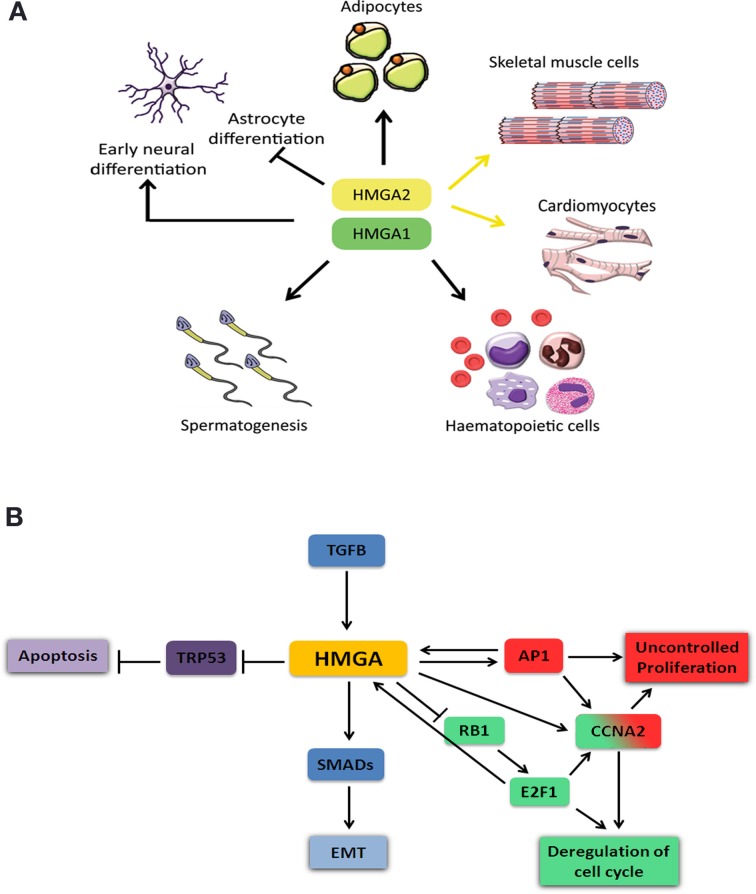Figure 2.
Schematic representation of HMGA role during cell differentiation and cancer. (A) HMGA proteins are required for proper development and progenitor cell differentiation to adipocyte, skeletal muscle, cardiac muscle, spermatozoids, and hematopoietic cells. They have a dual role in neuronal differentiation, where they are required during early neural progenitor differentiation but inhibit astrocyte differentiation at later stages. (B) HMGA proteins are involved in cellular processes that induce tumor formation and metastasis. Abnormal high expression of HMGA proteins results in tumor formation and metastasis. HMGA proteins deregulate cell cycle and thereby increase cell proliferation through either inhibition of RB1 and induction of E2F1 (green) or activation of AP1 and increased Cyclin A2 (Ccna2) expression (red). HMGA interaction with TRP53 blocks its activity and results in inhibition of apoptosis (purple). TGFB positively regulates HMGA expression (blue). HMGA interaction with SMADs leads to epithelial mesenchymal transition (EMT).

